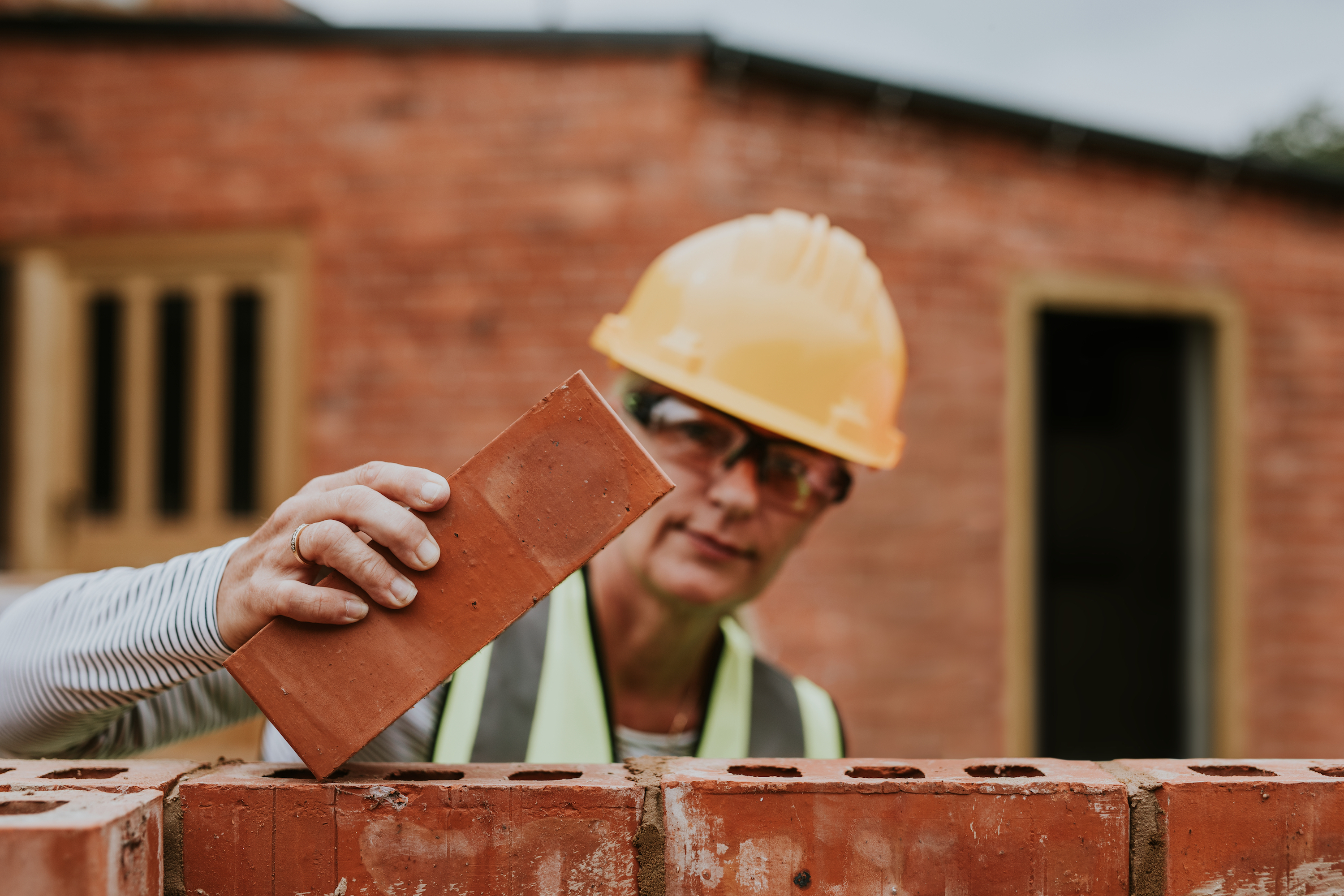Exploring Opportunities: Companies Leading in Bricklaying Apprenticeships
Bricklaying apprenticeships in the UK provide a unique pathway for individuals to master the art of brickwork while gaining practical experience in a professional setting. These apprenticeships offer a hands-on approach to learning, blending on-the-job training with theoretical knowledge. As we delve into the world of bricklaying apprenticeships, we'll explore the top companies leading the way in offering these valuable opportunities.
Top 5 Bricklaying Apprenticeships and Their Pay Scales
1. Barratt Developments PLC:
Barratt Developments stands out as a key player in the construction industry, offering bricklaying apprenticeships that provide a comprehensive learning experience. Apprentices at Barratt Developments gain exposure to diverse projects, honing their skills under the guidance of seasoned professionals. The pay scale is competitive, with apprentices earning an average of £15,000 to £18,000 per annum during their training period.
2. Taylor Wimpey:
Taylor Wimpey's commitment to quality extends to its apprenticeship programs, including those focused on bricklaying. This renowned company offers apprenticeships that emphasize skill development and practical application. Taylor Wimpey apprentices benefit from a structured learning environment and a starting salary ranging from £14,000 to £17,000.
3. Redrow Homes:
Redrow Homes is synonymous with innovation in the housing sector. Aspiring bricklayers choosing Redrow's apprenticeship program embark on a journey of skill enhancement and personal growth. Redrow recognises the dedication of its apprentices by providing a competitive salary, typically ranging between £15,000 and £19,000 per year.
4. Persimmon Homes:
Persimmon Homes takes pride in nurturing talent through its bricklaying apprenticeships. The program focuses on fostering a deep understanding of construction techniques and craftsmanship. Apprentices at Persimmon Homes receive a salary between £14,000 and £17,000, making it an attractive option for those starting their careers in bricklaying.
5. Bovis Homes:
Bovis Homes offers apprenticeships that combine traditional craftsmanship with modern construction practices. Apprentices benefit from exposure to a range of projects, contributing to their overall skill set. The pay scale for bricklaying apprentices at Bovis Homes is competitive, with an average annual salary ranging from £14,000 to £18,000.

Benefits of Bricklaying Apprenticeships
1. Hands-On Experience:
Bricklaying apprenticeships provide hands-on experience from day one, allowing apprentices to learn directly from skilled professionals in a practical setting.
2. Qualifications and Certifications:
Apprenticeships in bricklaying often lead to nationally recognised qualifications such as NVQs (National Vocational Qualifications) and City & Guilds certifications, enhancing apprentices' employability and career prospects.
3. Career Progression:
Completing a bricklaying apprenticeship opens doors to various career pathways within the construction industry, including roles such as bricklayer, site manager, estimator, and even self-employment as a qualified tradesperson.
4. Earning While Learning:
One of the key advantages of apprenticeships is the ability to earn a wage while undergoing training, allowing apprentices to support themselves financially without accumulating student debt.
5. Job Security:
The construction industry consistently requires skilled bricklayers, offering apprentices a stable career path with opportunities for long-term employment.
Qualifications Associated with Bricklaying Apprenticeships:
1. NVQ Level 2 or 3 in Bricklaying:
The National Vocational Qualification (NVQ) is a work-based qualification that assesses an individual's competence in performing tasks and duties relevant to their occupation. In bricklaying apprenticeships, apprentices work towards achieving NVQ Level 2 or Level 3 qualifications, which demonstrate their proficiency in various aspects of bricklaying, including laying bricks, blocks, and other types of masonry.
2. City & Guilds Bricklaying Qualifications:
City & Guilds offers a range of bricklaying qualifications that are widely recognised in the construction industry. Apprentices may work towards achieving qualifications such as the City & Guilds Level 2 Diploma in Bricklaying or the City & Guilds Level 3 Advanced Technical Diploma in Bricklaying.
3. BTEC Diploma in Construction:
The Business and Technology Education Council (BTEC) offers diplomas in construction-related disciplines, including bricklaying. Apprenticeships may incorporate elements of BTEC qualifications to provide a broader understanding of construction principles and practices.
4. Functional Skills Qualifications:
In addition to technical qualifications specific to bricklaying, apprenticeships often include Functional Skills qualifications in English and Mathematics. These qualifications ensure apprentices develop essential literacy and numeracy skills necessary for success in the workplace.
5. CITB Site Safety Plus Certifications:
The Construction Industry Training Board (CITB) provides a range of Site Safety Plus certifications that focus on health and safety within the construction industry. Apprentices may have the opportunity to obtain certifications such as the CITB Health, Safety and Environment (HS&E) Test, which demonstrates their understanding of health and safety regulations and procedures.
By completing a bricklaying apprenticeship and attaining these qualifications, individuals not only validate their skills and expertise but also enhance their employability within the construction sector. These qualifications serve as a testament to their commitment to professional development and readiness to contribute to construction projects with proficiency and competence.
Potential Jobs After Completing Bricklaying Apprenticeships
Upon successfully completing a bricklaying apprenticeship, apprentices can explore a range of career options within the construction sector, including:
1. Bricklayer:
As a qualified bricklayer, individuals can work on various construction projects, including residential homes, commercial buildings, and infrastructure developments.
2. Site Manager:
Experienced bricklayers may progress into site management roles, overseeing construction projects, managing teams, and ensuring projects are completed safely and efficiently.
3. Estimator:
With a solid understanding of construction materials and techniques, apprentices can pursue careers as estimators, responsible for calculating project costs and preparing bids for construction contracts.
4. Self-Employment:
Many bricklaying apprentices choose to become self-employed tradespeople, offering their services to clients and contractors for projects ranging from small repairs to large-scale construction ventures.
Bricklaying apprenticeships offer a gateway to a fulfilling and prosperous career in the construction industry. With the support of reputable companies and a structured learning environment, aspiring bricklayers can embark on a journey towards professional excellence while laying the foundations for a successful career ahead.
About the Author: Nurturing Apprenticeship Enthusiasm

Darryn (The Office Apprentice) Lewis
Talent Acquisition Specialist with a rich tapestry of 15 years in the world of human resources and recruitment. My passion lies in connecting exceptional talent with forward-thinking organisations, fostering growth on both ends of the spectrum.
I bring not just expertise but a genuine love for the subject. Through my words, apprenticeships cease to be a mere career path; they become a transformative journey toward personal and professional growth. Welcome to a space where enthusiasm for apprenticeships is not just evident but contagious. Let's embark on this exciting adventure together!